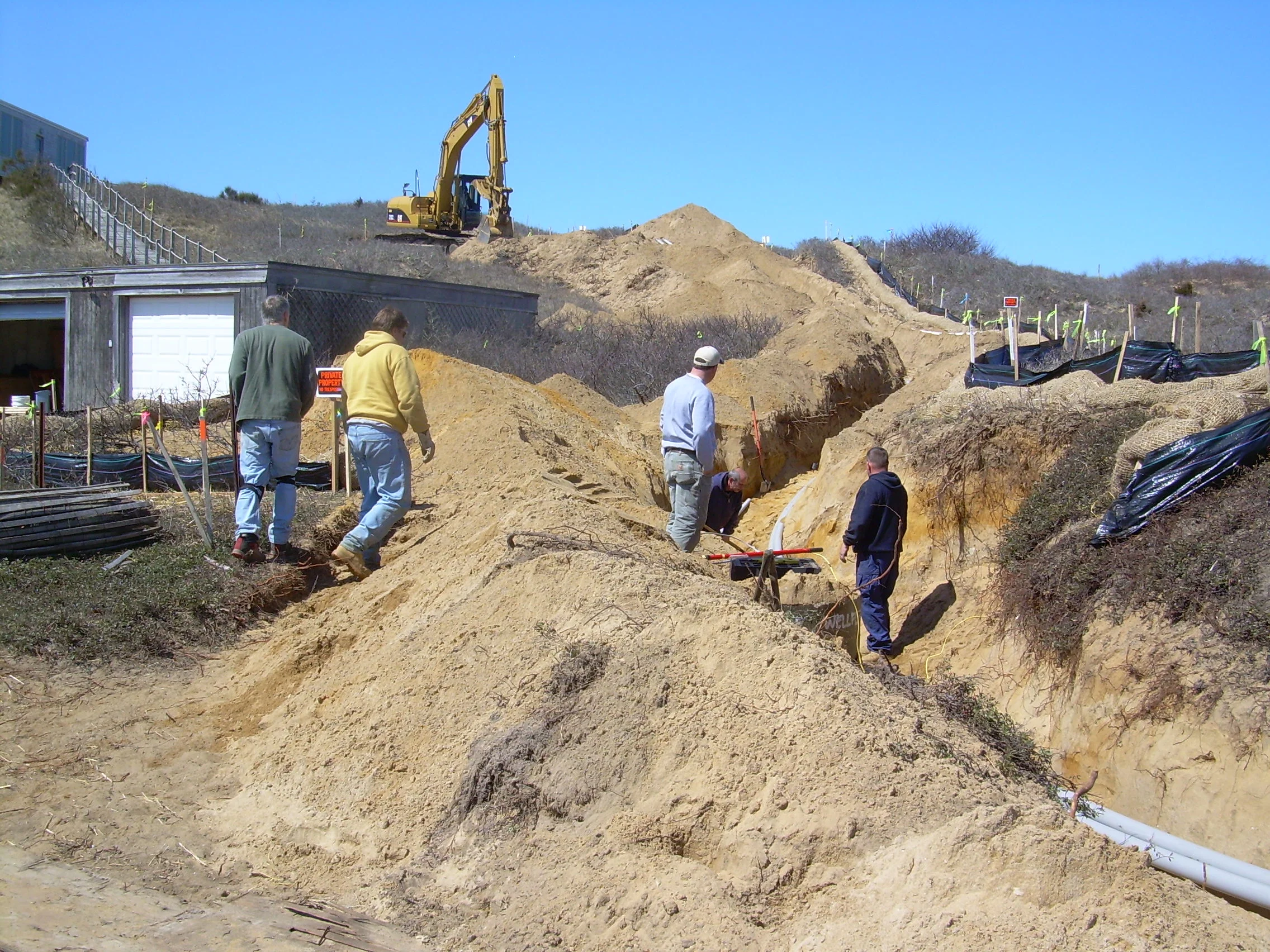CONSTRUCTION MANAGEMENT Strategies and Techniques
Our coastal land represents only 17% of the U.S. but is home to over 50% of the population. Development contributes to the annual loss of nearly 20,000 acres of coastal habitat. We believe that linking proven and innovative techniques can reduce stress on coastal ecosystems.
People and resources need each other to survive. Deterioration of native habitat leads to reduction in the coastal economy. Sustainable alternatives should always be explored in coastal resources. By 2025, it has been predicted that up to 25% of our watersheds will be impervious.
Coastal Construction incorporates green building.
Tree Protection Guide
Trees and people don’t always interact kindly, especially on building sites. Here are some suggestions for short- and long-term protection of trees and guidelines for replacements.
Outdoor Rinse Stations
Soap-less, outdoor rinse stations have replaced outdoor showers in wetlands buffer zones. Rinse stations protect water quality by reducing septic loading from indoor showers.
DEMOLITION MANAGEMENT
Managed demolition saves money and resources. Demolition does not touch the earth lightly. Collaboration with contractors and regulators can develop innovative protocols that decrease impacts and increase cost benefits.
Concrete Management
When using concrete near wetland resources, easy techniques are implemented to protect ground water. Concrete and rinse water characteristics can create nutrient over loading. This publication includes green building techniques that protect ground water quality.
MANAGING STORM WATER
Storm water is rain, falling on impervious surfaces and directed down slope by gravity, as "sheet flow". When sheet flow collects in gutters and down spouts, it becomes a point source. Storm water management is the strategy of percolating point sources into ground water. Both sheet flow and point sources can be managed this way, with various strategies.
Revegetation
EROSION CONTROL SYSTEMs
Download your own copy of our publication: Erosion Control Guidelines and Dewatering 3rd Edition










